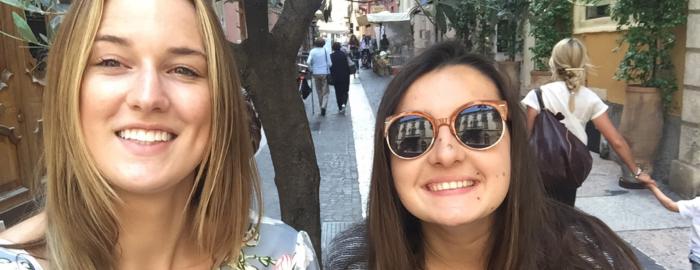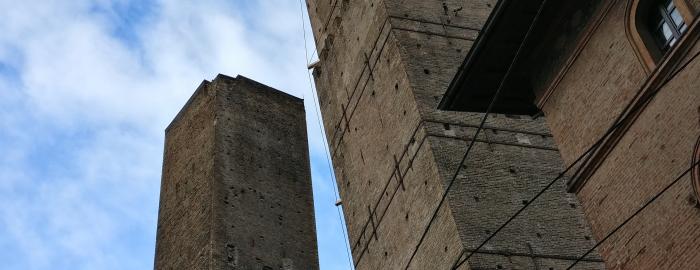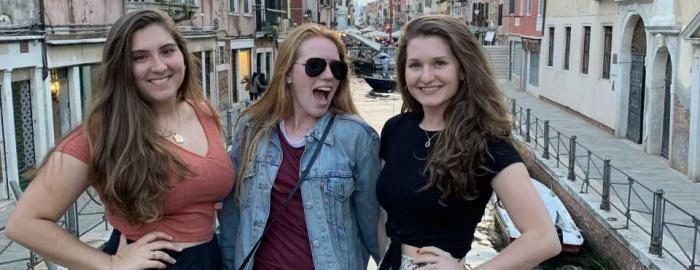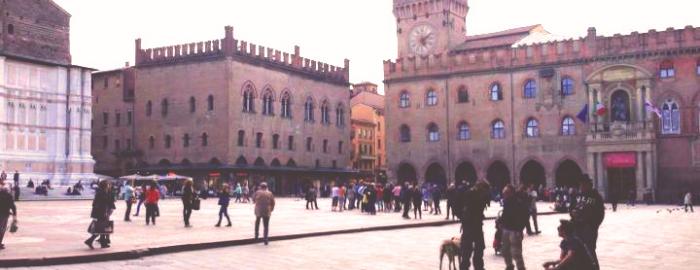Tell us why you decided to do this program.
Up until Duke in Bologna, I was a city girl from the Midwest (Kansas City) who had never been outside of the continental United States. I could only speak English, and my language experiences in high school stopped at being able to translate pages and pages of Latin text. Nevertheless, even simply reading about the world through the context of Latin and ancient history was intriguing to me.
Arriving at Duke, I knew that international studies were going to be part of my education someway, somehow. I was inspired by Italy’s culture and identity, and with a personality to match, I hoped that I could also be a part of something so rich. I chose the Duke in Bologna language program because I knew it would be the most beneficial and challenging for my personal growth as an Italian enthusiast as I step out of my home country for the first time.
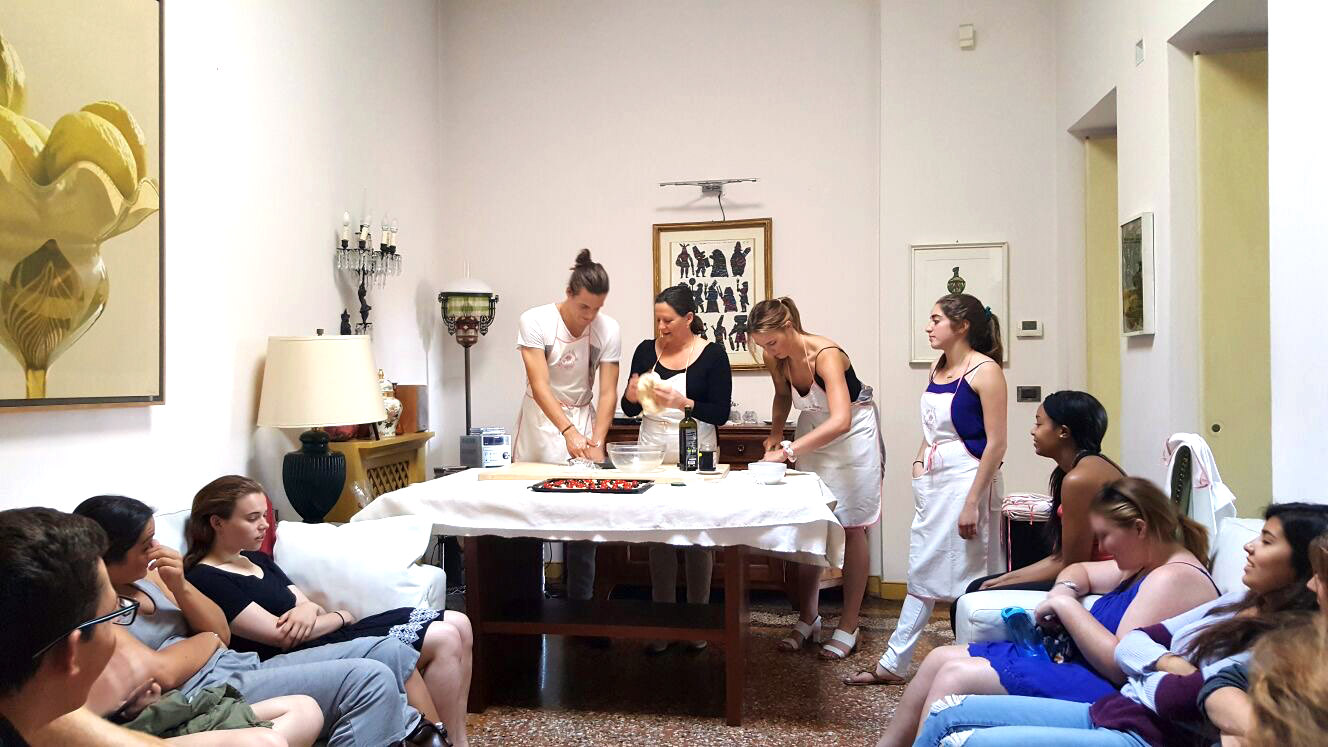
Thinking back to what you expected this program to be like, would you say anything surprised you or turned out differently?
First of all, the transition to a new country was much more difficult than I ever thought it could be, even though Italy is no stranger to our social media and popular culture. The first night after arriving in Italy, after my first and solo transcontinental flight, I hid in my airport hotel room, not eating or leaving for nearly 24 hours because I was scared of the outside. I was surprised by how out of place I felt. I was surprised by how much effort it took to adapt everything we have learned about Italian culture and language to real world situations. I was surprised that the everyday lives of the Italian people were so different from my own.
Yet, with each step away from that hotel room, and from that first night, my eyes opened wider and my voice went farther. By the end of the program, I felt a comfort and ownership towards Bologna. We made friends with Italian students in Bologna; we attended the graduation of a group of immigrants trying to make a new and better life in Italy; and we enjoyed long days in the park amongst the rest of Bologna. We hiked, we attended operas, we feasted, we cooked, we sightsaw, we joined Italian gyms, we travelled, and we read every sign in every museum. Now more than anything I am still surprised that Bologna and study abroad became more than just a learning experience; it became my “home.”
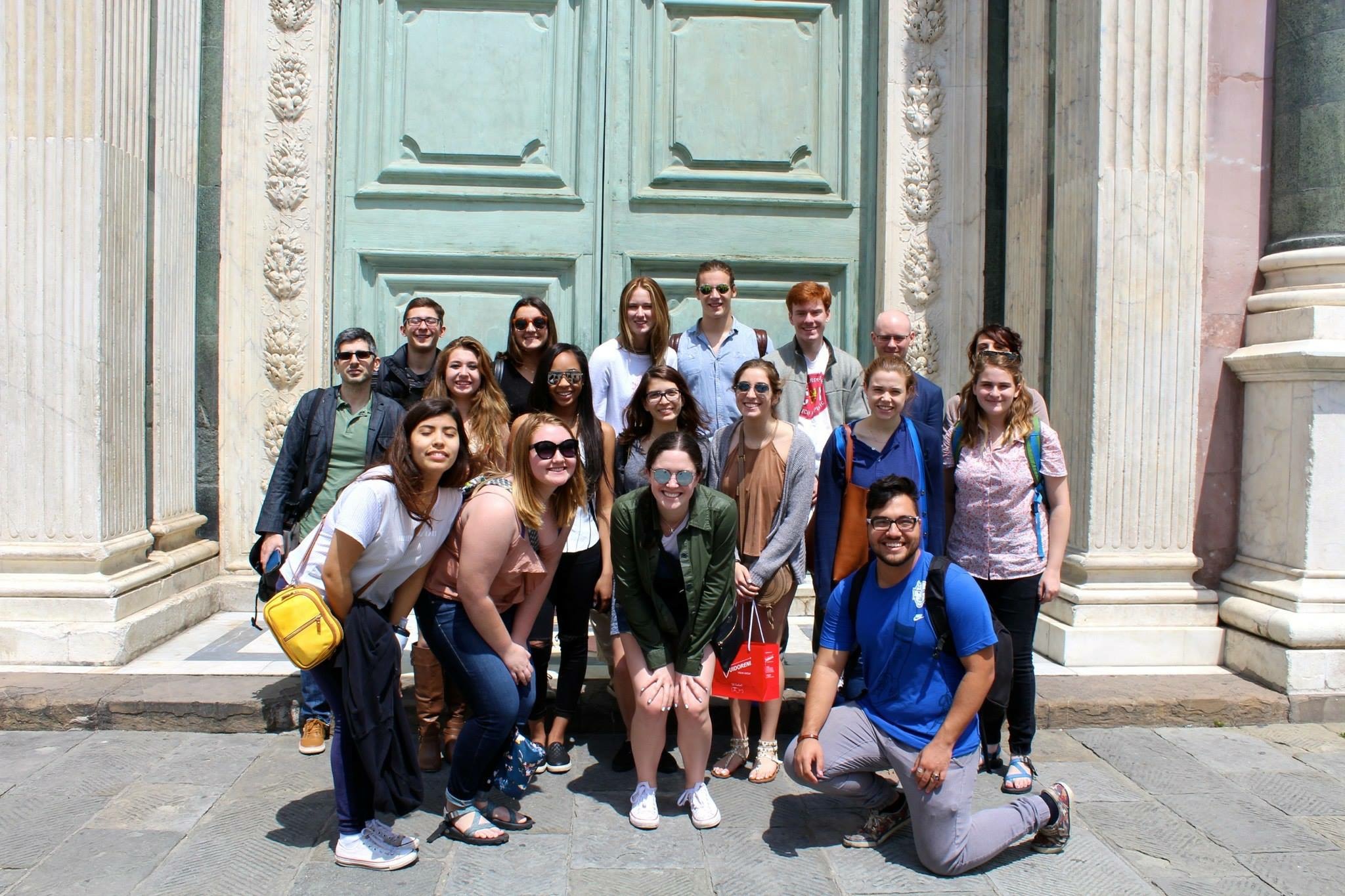
Tell us about your greatest takeaway from this program.
Throughout the course of this program, I began to realize that whatever I think I know about different perspectives, I am instead honestly quite ignorant. Whether it is the different cultures of people within your own city like Durham or those of an entirely different country, every perspective has its own innate and considerable value. I realized that as close I was to Italian culture while living there, I would never be able to fully grasp this value. Nevertheless, to genuinely and humbly try is one of the most important things for citizens of our global world to do.
I realized also that a degree in economics wasn't enough; well roundedness of academic thought is one thing that Duke promotes highly, so my experience in Italy inspired me to seek out new challenges and perspectives. It has inspired in me a desire for learning that I will carry with me in every future adventure, as well as an ability to see the importance of each person’s unique experiences, perspectives, and expressions.
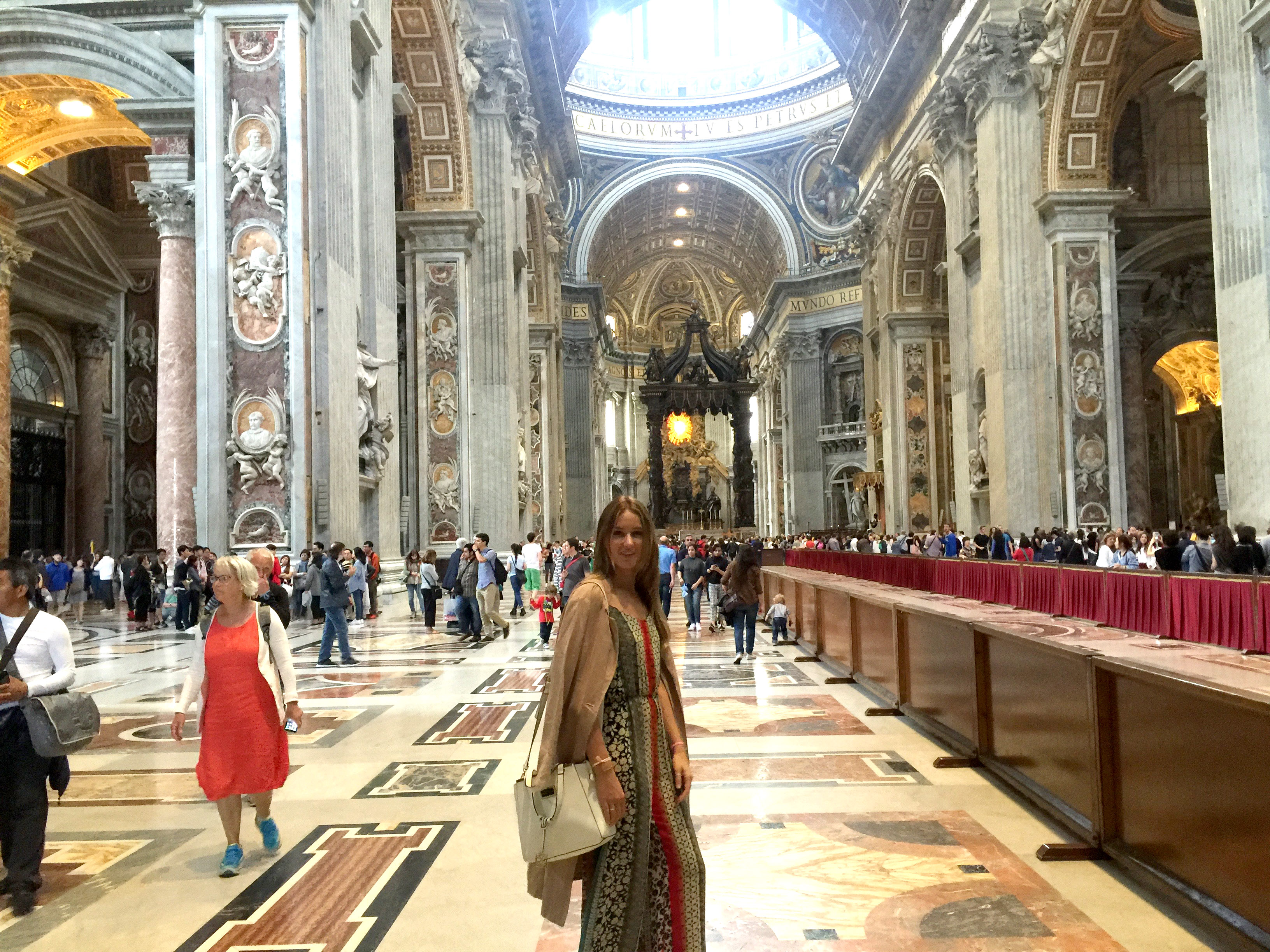
How did/will this program play into the rest of your undergraduate experience?
Before I began my Italian studies at Duke, and before I decided to do Duke in Bologna, I might have (admittedly) been on the side of the liberal arts education debate that was confused why so many general education requirements were necessary for graduation. If I knew what I wanted to do (though looking back I had no idea, and still have no idea what I want to do), why would I need to take so many classes in other disciplines? Every student goes through that brief registration-period hopelessness, thinking 'Why must I find another ALP or another quantitative class?'
During my freshman year, taking biology, philosophy and psychology classes as an economics major began my interest in multiple disciplines, but it was my studies in Italian that pushed me into the realm of “hopeless romantic” for the liberal arts education. After Duke in Bologna, I was addicted to languages and addicted to taking classes that I knew I didn't have the skills for. My Duke experience as a whole became much more rich as a result of this program. So now, here I am today, as a reborn advocate for testing the waters in all that your college experience can offer.
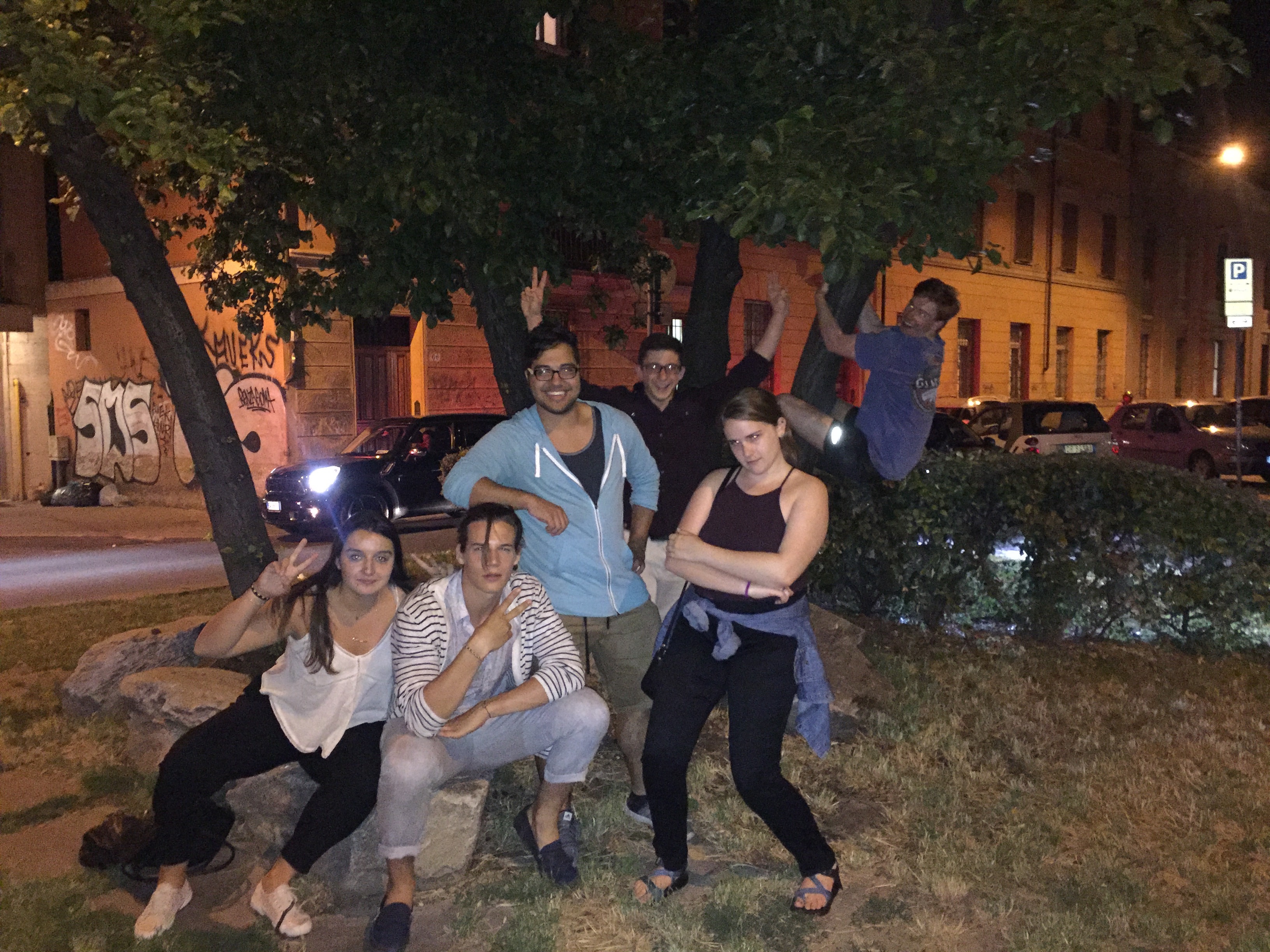
What advice do you have for other students considering this program?
If you are considering this program or any other language program, my advice is to grasp this opportunity with all your might. Language is such an integral part of each individual’s own world, and there is nothing more life changing then seeing the world through the eyes of a language that is not your own, especially if you are monolingual like I am. During the course of the program, do not be afraid to test out your language skills!
Whether you are in the foreign country for six weeks or a full year, your speaking abilities will not improve unless you step outside of your comfort zone and are willing to suffer the embarrassment. You will only ever regret what you didn't do. Not only will you learn more of the language by risking to fail, but it will enrich the experience as a whole. The city brings the language to life, but the language also brings the city to life, all in entirely unforeseen ways.
Anna Kropf
Economics, Class of 2018
Duke in Bologna
Summer 2016


